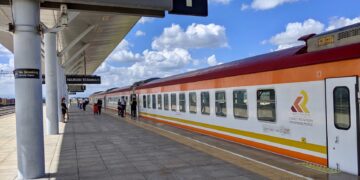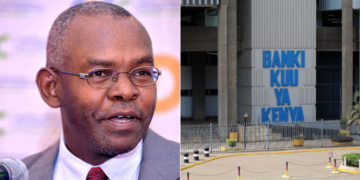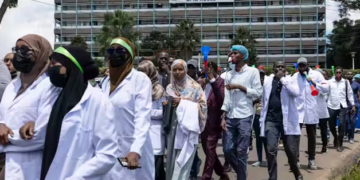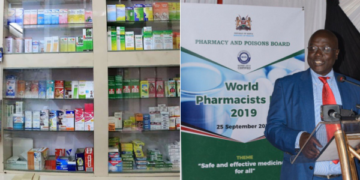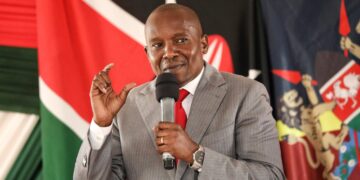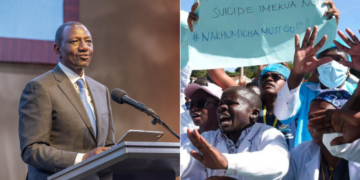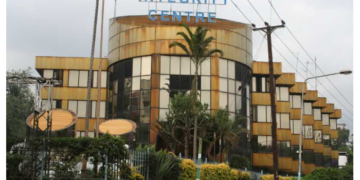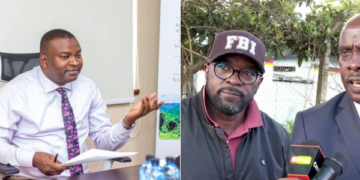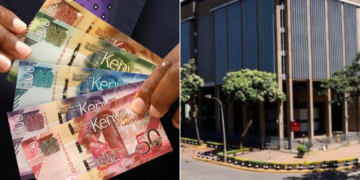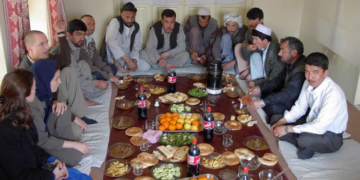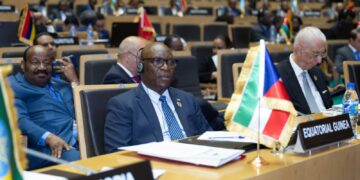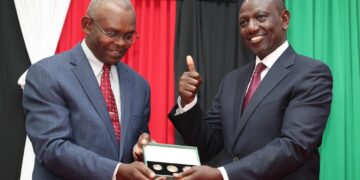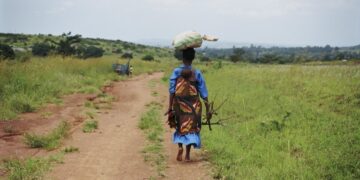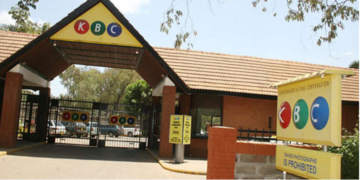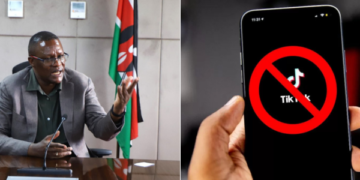The South African Minister of Home Affairs, Aaron Motsoaledi, recently lost a court case that anyone could have anticipated was unwinnable. He probably expected to lose it too. He lost it on humanitarian and technical grounds. It prevents him from terminating the South African government’s concession to refugees from neighboring Zimbabwe nearly fifteen years ago.
In April 2009, South Africa provided legalized shelter for Zimbabweans hit by economic and political crisis in their country across the Limpopo River. The Zimbabwe Dispensation Project was the first form of a policy to temporarily accommodate Zimbabwean refugees. It became the Zimbabwean Special permit in 2014 and after 2017 it was known as the Zimbabwe Exemption Permit. Zimbabweans who had arrived during the crisis period of 2008-09 had full freedoms, but no rights to citizenship even for their children, for as long as the permits allowed.
In 2021, Home Affairs decided to end the special dispensation after a period of grace lasting till the end of 2022 to allow Zimbabweans to regularize their circumstances. Some were expected to be able to obtain residence and work rights based on their skills and occupations, and others were to return to Zimbabwe. The number of people affected by the ruling is estimated at around 178 000 who remained on their ZE permits. Children born in South Africa were expected and allowed to obtain Zimbabwean citizenship and were not allowed South African citizenship.
178 000 is a relatively small number compared with the total number of immigrants in South Africa, estimated at 3.96 million by StatsSA. Many of the registered Zimbabweans are educated and skilled. Most have been successfully living in South Africa for 15 years. Why not simply regularize all the law-abiding Zimbabweans living under the permit?
Elsewhere in Africa and around the world larger numbers of irregular migrants have been regularized. In South Africa, Mozambican refugees were regularized after the end of the Mozambican civil war. But the current anti-migrant sentiment in South Africa made such a course difficult for the Minister of Home Affairs. This is why he opposed a court action he pretty much knew he would lose.
I have been studying migration policy on the continent, including the African Union’s adoption of a protocol on the free movement of people in 2018 which I have argued could facilitate economic growth and the trade integration.
Migration policy in South Africa seems constantly in flux. Most of the immigration policy white paper passed by cabinet in 2017 has never been implemented. Policy documents and a law amendment on labour migration published a year and a half ago are still in limbo. A promised new white paper on immigration has not yet been published. Some of the proposals could have simplified migration rules such as a proposal to replace the critical skills list with a points system, while others such as the quota system proposed in the draft law would have added further complexities.
Will any reforms be implemented before the general election of 2024? Probably not. This is the fundamental problem. Immigration policy is so highly politicized that the government seems afraid to move. Our programme of research seeks to show how South Africa could learn positive lessons on migration reform from other African countries and elsewhere.
Hostility to migration
While politicians frequently voice sentiments hostile to migration and migrants, sensible policies in practice and on the table are shrouded in camouflage and occasionally sneaked through. One example is the corporate labour permit, another is the rising number of African countries with visa-free access to South Africa. Access to skilled employees needed from beyond our borders is being simplified. Reforms will be hidden behind a veil of hostility to foreigners.
This is hardly unique to South Africa. In the UK, while the government threatens to deport illegal migrants to Rwanda and stakes its fate on “stopping the boats” in deference to its political base, “long-term immigration … rose to 1.2 million for the year ending December 2022, an increase of 221,000 from the previous year”.
Similarly, Georgia Meloni who was elected Prime Minister of Italy at least in part for her anti-immigrant views, has set aside work permits for 425 000 non-EU migrants to immigrate into Italy up to 2025. Laura Boldrini, of the centre-left Democratic Party, said the high quotas were a surrender and
a bitter dose of reality for those who have built their political careers by demonizing immigration as a national security threat.
A textbook on migration warns us, when it comes to migration policies, “not to equate political rhetoric with policy practice”. It is not surprising that in many countries migration policies seem confused or incomprehensible. Migration policy reform seems elusive in the context of such opacity.
And yet, effective African economic development depends on economic integration. Most countries are pretty small, especially economically, and effective integration entails the movement of persons across borders without excessive hindrances.
Also Read: The Harvard of Anti-Terrorism: How Israel’s Military-Industrial Complex Feeds the Global Arms Trade
Not all African governments, even of richer countries, have been as hesitant as South Africa to reform migration policies. Members of both the East African Community and the Economic Community of West African States (ECOWAS) have made greater progress than the regions at the southern and northern ends of the continent. Countries in Africa can learn not only from experiences in the EU or in South America, but also from other African countries and regions.
The New South Institute is running the Migration Governance Reform in Africa project, or MIGRA. The rationale and framework for the MIGRA project are set out in our new working paper.
We are studying migration policy and practice in four African countries, South Africa, Mozambique, Kenya and Nigeria, and in four regional organizations, SADC, the EAC, ECOWAS and the African Union. We believe that countries and regions in Africa can learn as much from each other as they can from experiences elsewhere. Papers on these eight cases will be published over the next year or so, as they are completed, and we will also be preparing other forms of media to engage in conversation with the wider public as well as with policymakers.
The work we have already done shows us some exciting examples of reform on the African continent. In east and west Africa there are many ways to allow cross border migrants access for different periods and reasons. Even in southern Africa the recent agreement between Namibia and Botswana on travel by citizens of the two countries across their common border with identity documents alone shows what progress is possible. Visa-free travel is proliferating in Africa, as the recent bilateral agreement between South Africa and Kenya shows. There are many more examples.
Our project grows as much out of optimism about recent developments on migration governance around the African continent, as from the frustration and confusion about migration policy in many places. Perhaps it will make a small contribution to improving the practice, and maybe even the political rhetoric. And perhaps the South African cabinet will decide to grant the Zimbabwean exemption permit holders and their children the same kind of amnesty that was offered to 220 000 Mozambican refugees in December 1996.
Alan Hirsch, Research Fellow New South Institute, Emeritus Professor at The Nelson Mandela School of Public Governance, University of Cape Town
This article is republished from The Conversation under a Creative Commons license. Read the original article.





